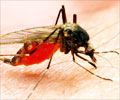Treatment for Chronic Fatigue Syndrome
As the exact cause of CFS is not known, treatment is largely based on provision of symptomatic relief, helping the patient restore his near normal functionality. It should however be remembered that it may not be possible to achieve this instantaneously. Infact most patients out of anxiety, overexert themselves only to land up with more fatigue and depression. A carefully designed rehabilitation program can overcome all these factors.
It is very essential to discuss the severity of CFS and its impact on functional capability of an individual, with the health care provider who can then draft an individualized health care program. It is equally important to also educate the patient regarding CFS and alert them regarding certain activities that may aggravate the symptoms. Cognitive behavioral therapy, targeted at provision of CFS related education can allow for increased level of activity without increase in the frequency or severity of symptoms. Depending on the patient's improvement, further follow up treatment can be adjusted. Treatment for CFS is currently based on a multi-disciplinary approach.
Physical Activity
It is known that physical activity enhances the physical and mental health of an individual. Patients with CFS may be encouraged to participate in various forms of physical activity. It is however important to ensure that the patient understands his/her limitations to avoid any increase in the level of fatigue.
It is strongly recommended that CFS patients take up a moderate exercise program; under the supervision of a physical therapist or any other health care provider familiar with CFS and its treatment. Patients can also be advised regarding the 'push-crash' phenomenon, characterized by excessive physical activity during periods of better health followed by periods of fatigue due to excess activity. The exercise regime can incorporate any form of physical activity such as light exercise, stretching, aquatic therapy etc. In some cases where the patient's energy is not severely compromised, the patient may be encouraged to participate in yoga.
In addition to the above-mentioned forms of treatment with an active physical component, acupuncture, massage therapy, self-hypnosis etc can also be suggested. Although these modalities can improve the general well being, they are more effective when combined along with any form of patient-generated activity.
Drug Therapy
Pharmacologic therapy is based on use of certain drugs to provide symptomatic relief to the patient. This form of therapy can be applied only when the underlying symptom cannot be attributed to any known cause and all other differential diagnosis has been ruled out. Owing to increased sensitivity of CFS patients to certain medications, it is advisable to start a drug therapy at very low doses. Depending on the therapeutic benefit and the patient's tolerability, the dose can be increased progressively.
NSAIDs: This class of drugs commonly referred to as non-steroidal anti-inflammatory drugs can be used to relieve the pain experienced by CFS patients. As many of the drugs can lead to dangerous side effects, patients have to be closely monitored regarding the same.
Antidepressants: Tricyclic antidepressants are the most commonly used drugs to treat depression, in addition to providing relief from mild pain and improving sleep. Other class of antidepressants includes monoamine oxidase inhibitors (MAOIs) and selective serotonin reuptake inhibitors (SSRIs). In some cases where CFS is associated with nervous system disorders such as vertigo, skin tenderness, and abnormal limb movements, specific anxiolytic agents may be given to attenuate the associated anxiety. Anxiolytic agents however should not be prescribed for generalized CFS treatment.
Stimulants: Treatment with stimulant drugs may be necessary when CFS is associated with extreme lethargy or daytime sleepiness. Extreme caution is however necessary before such drugs can be prescribed.
Antimicrobials: If the patient is observed to be suffering from current infections, treatment with appropriate antibiotics, antiviral or antifungal drugs may be necessary. Additionally, recurrent episodes of allergy may be managed with non-sedating antihistamines.




















